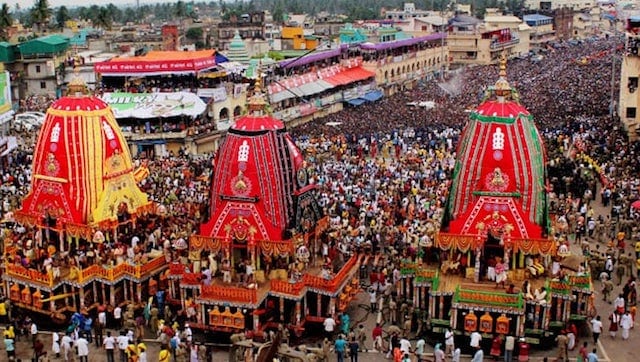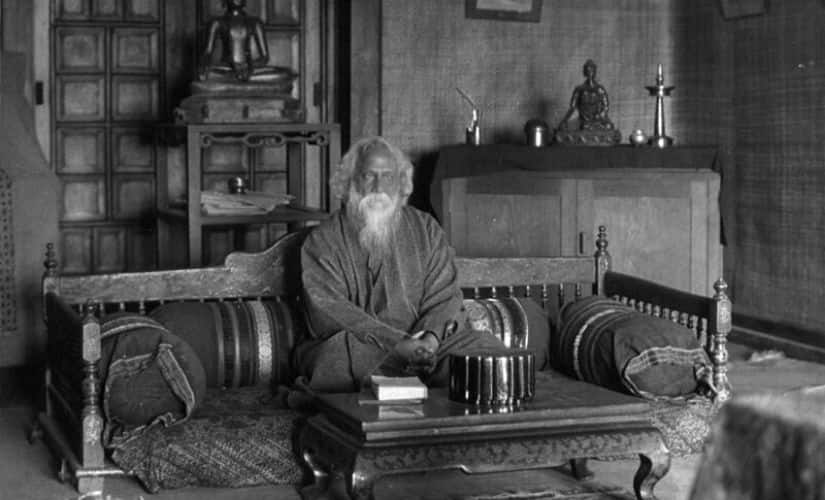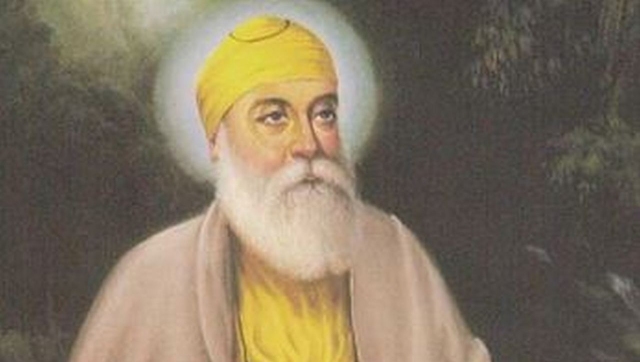How do you sing for the divine? When the mind disappears and the soul dissolves in the ocean of vastness, expression becomes the song of the divine. This can happen at any place, at any time. A cue from the inner-self, abundant love, a temple, myriad wonders of nature, absolute helplessness, a moment of bliss or a baby’s smile! When momentarily one forgets who she is, that melting point expressions become sublime like water and energy, simple, pure and immortal! A glimpse of Jagannath at Puri instantly makes you forget the maya. When Jagannath looks at you, immense attraction of its black coloured idol pulls you; and your senses abandon you instantly, leaving you no option but to assimilate in Him completely. Standing before the Lord, one feels motionless, speechless and thoughtless. First eyes get fixated on the idol and the devotee feels the enormous pull. Next moment her eyes become blur, tears rolling down on cheeks and then happens the divine experience! Oh, the moment of pure bliss. Rabindranath Tagore says: “Let all the love in me flow towards you Let the beggar’s bowl I had filled abjectly empty completely And all the chambers of my heart filled up instead O Lord, with your gifts, with only your gifts!” This pull is eternal. Like the moon’s attraction creating tides in the sea! That pull makes Nanak arrive at Puri after walking many thousand miles on his foot with wooden sandals from the far west. Nanak, who believes formlessness and form both coexist together. This pull resonates in inconceivable unity in duality also calls Chaitanya from the east. Only Jagannath can make that magic possible. A meeting of the two devotees at the entrance of the abode of the Lord of the Universe! Nanak is entering and Chaitanya is coming out. Their eyes meet and time stops for a while. They greet each other. And then, Nanak Dev turns about to leave the temple. A smiling Mahaprabhu asks him why Shah Fakir is not going inside for the darshan? Guru Nanak replies, “I have already seen the Lord.” [caption id=“attachment_8511091” align=“alignnone” width=“640”]  File image of historic Lord Jagannath’s Rath Yatra in Puri. PTI[/caption] Finger marks of Chaitanya Mahaprabhu are still on the wall inside the temple from where he used to adore the Lord. Standing there, you may see Him and in between there is the congregation of devotees like millions of galaxies encircling life centre of the Universe! However, crowded it may be, it’s a journey to be travelled alone. As Kabir says, “Das Kabir Har ke gun gave Bahar koi paar na pave Guru kee karni Guru jayega Chele kee karni chela!” (Kabir praises the Lord Outside no one gets it Guru will reap his deeds, And the pupil his own!) Guru Nanak’s first long journey, the Udasi, was for the darshan of the Lord. It was the longest of his Udasis, the journeys. In 1506 AD, he arrived at Puri. All along the way, the Guru had been conveying the message of compassion and universal love through his songs in kirtans. Mardana, his Muslim disciple, accompanied him. Bhai Mardana, used to play string instrument rabab when the Guru sang. Guru saw God’s palace from very far. His heart filled with joy. Grand abode’s aura made him ecstatic. He sat down on the beach and immersed deep in meditation. Mardana waited for a while and then walked towards the temple alone. He was hungry and it was the time for the Mahaprasada in the temple. However, for Mardana being a Muslim, the priests did not allow him to enter into the temple. An irritated Mardana waited outside the temple for some time. When he was not offered the Mahaprasada, infuriated he went back to the Guru, and complained. “We will die of hunger here. Why have we come to this place?” Mardana blamed the Guru. The Guru without opening his eyes put his hand on Mardana’s head. For a second, in expectation, Mardada looked at his Guru’s serene face, and the next moment he heard a soft tinkling of metal. He turned his head and saw someone standing close to him with food and drink in golden utensils. “Eat. You are hungry.” The unknown person offered him the Mahaprasada. Mardana recognised the divine bells tolling in the Universe. The night passed peacefully on the beach, and Mardana slept quietly under the sky full of stars. But, moments before the dawn, there was a commotion in the temple that disturbed Mardana’s sleep. Gold utensils of the deity were missing in the temple. The matter was serious and therefore was brought immediately before the Maharaja of Puri. Maharaja smiled at the messengers. He knew where the golden utensils were. In the night Shah Fakir had appeared to the Maharaja in his dream. Maharaja did not miss a second and ran barefoot towards the sea beach. Hearing about the king running barefoot, the entire town woke up. Perplexed people followed their king. When this great procession reached the Guru, they found him deep in meditation and the gold utensils were lying close by. The king and his people welcomed the saint and took him to the temple. Looking at the unfathomable aura of the Lord of the Universe, the Guru got mesmerised and sat in deep meditation. After some time when the priests and the devotees stood up for the prayer, Nanak was still sitting charged with ecstasy while tears rolled down his cheeks. Prayer began with the sounds of ghanta, mardala and kahali; devotees started chanting the name of the Lord, but Nanak remained transfixed. Seeing this, a few priests looked at Maharaja in disapproval. Maharaja was about to touch the shoulder of the Guru to wake him up. Suddenly, at that moment the Guru got up and walked out. At the beach, looking up in the sky, the Guru spontaneously started singing: “Gagan mein thal, ravi-chandu deepak bane Taraka-mandal janak moti; Dhoop malayanlo, pavan chavaro kare Sakal banray phulant joti.” (In the salver of the sky, the sun and the moon are lamps Stars with their orbs are the studded pearls; The sandalwood fragrance is thy incense and the wind is thy fan The forests are the flowers.) “Kaisi arti hoye Bhav khandana, teri aarati Anahada shabad, vajanta bheree.” (O! How wonderful is this aarti! O, thou destroyer of fear The subtle sound of your name, goes unheard, resounds endlessly.) This mesmerising aarti is the simplest yet most profound ever offered to the Lord. The entire Universe is imagined as a decorated platter for the prayer on the altar of the almighty. At Shantiniketan, Balraj Sahni once requested Guru Rabindranath Tagore to write an anthem for the world. The Guru smiled and replied, “Balraj, such an anthem has already been written a few hundred years ago. Have not you heard ‘Gagan mein thal?’ This aarti is sung daily at most Gurdwara sahibs. Guru Nanak Dev ji has composed this all-inclusive anthem for everyone in the Universe. This anthem echoes the ethos of humanity and pays gratitude to the Lord of the Universe.” [caption id=“attachment_8343111” align=“alignnone” width=“825”]  Rabindranath Tagore in the year 1925[/caption] Jagannath and Odisha had a profound impact on Guru Nanak Dev ji. But, there is one more jewel of Odisha that was very close to Nanak Shah Fakir’s heart. Born near Puri in 12th century, one of the greatest Sanskrit poets Jaidev enriched Bhakti movement like Tulasidas, Kabir, Surdas, Chandidas, Vidyapati, Meerabai, Bhakt Nabhadas and others. Every night during the badasingar, the last ritual of the Jagannath temple, Jaidev’s epic poem Geet Govind is sung as a mandatory seva. This tradition has continued unbroken since the times of Jaidev himself. Guru Nanak Dev ji heard Jaideva’s songs during his visit to Puri and became fascinated by them. When Guru Arjun Dev compiled the Guru Granth Sahib in 1604, Jaidev’s songs were incorporated in the Granth Sahib. An alumnus of IIT Delhi, National University of Singapore and Delhi University, Yugal Joshi is Inspector General, Railway Protection Force, East Coast Railway, Bhubaneshwar. Views expressed are personal.
A smiling Mahaprabhu asks him why Shah Fakir is not going inside for the darshan? Guru Nanak replies, ‘I have already seen the Lord’
Advertisement
End of Article


)
)
)
)
)
)
)
)
)



